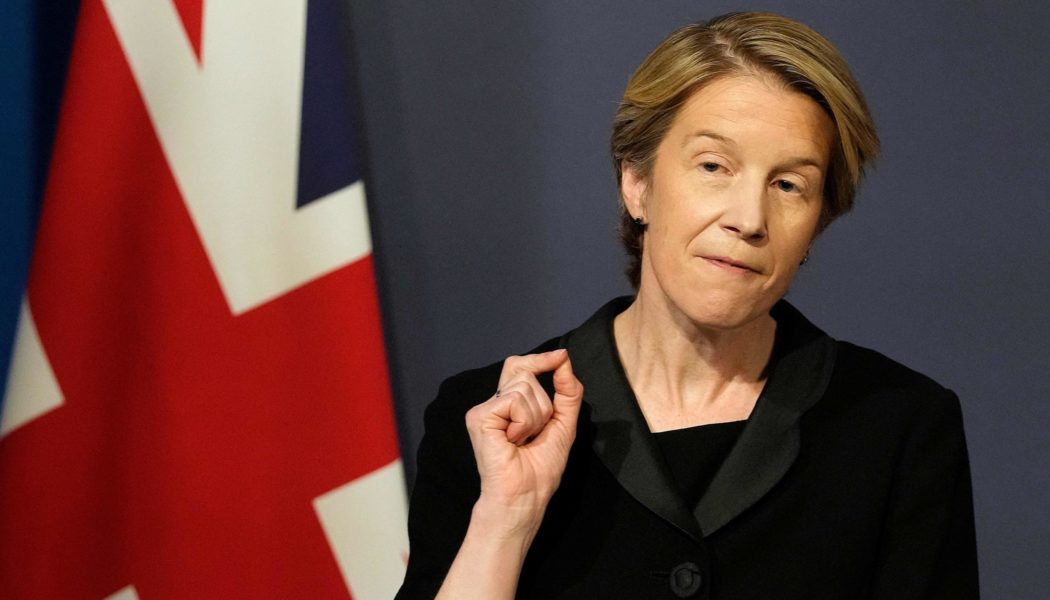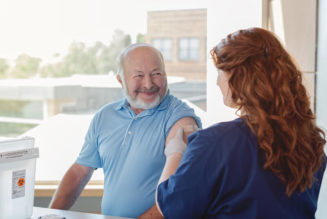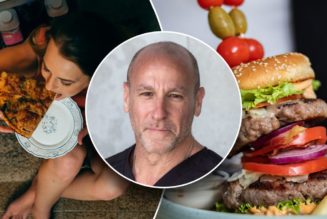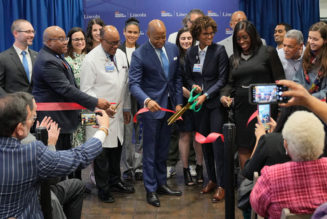Creating a healthier nation needs action beyond the NHS, the head of NHS England has said, as polling reveals public support for tougher action on junk food.
Amanda Pritchard said that the majority of factors that determined people’s health, including food, housing and work or education, were outside of the health service’s control.
She told the Times Health Commission that the amount of “hidden” unhealthy options in foods such as breakfast cereals meant people often did not have a real choice to avoid them.
The commission’s final report after a year-long inquiry was published on Monday and has been welcomed by groups ranging from NHS leaders to Royal Colleges, health think tanks and unions.
Sir Keir Starmer, the Labour leader, has committed to adopting its key recommendation for digital “patient passports” that would allow seamless transfer of people’s health data across services, should his party win power.
A further recommendation is that the sugar tax on soft drinks be expanded to other sugary drinks and products.
A YouGov poll for The Times found that 53 per cent of people also backed extending the tax to foods high in salt, and 49 per cent extending it to milk-based drinks containing sugar.
It found that 74 per cent of people supported banning foods that were high in salt, sugar or fat from using packaging that aims to appeal to children, and 59 per cent backed a ban for TV advertising of such foods before 9pm.
The government plan to introduce an advertising watershed for junk foods was pushed back to 2025, after originally being due to come in from January 2023. The commission’s report says it should be brought in as soon as possible, and should apply to digital platforms such as YouTube and social media. It also urges the reduction of cartoons on packaging to minimise children’s exposure to unhealthy food.
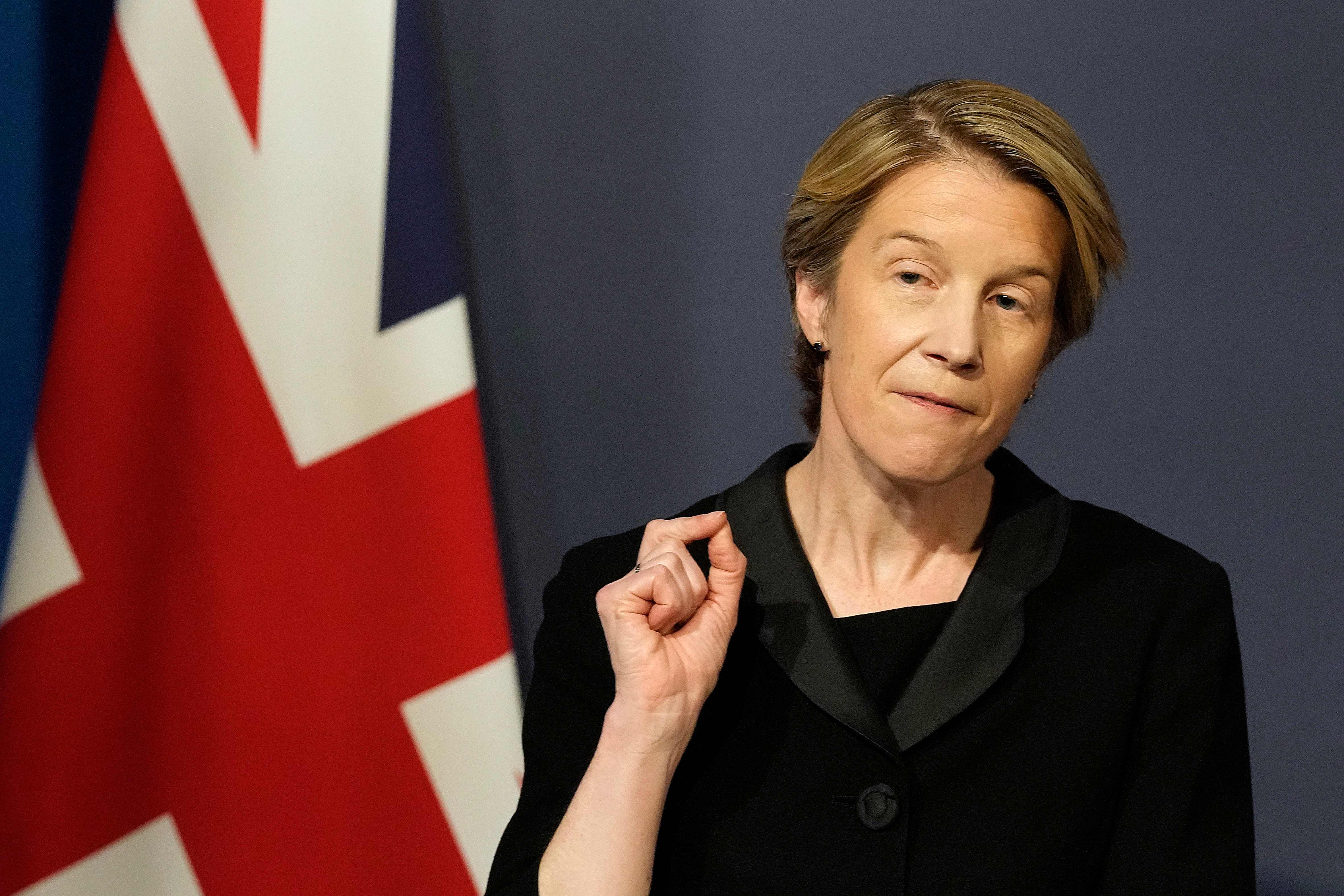
Amanda Pritchard expressed dismay at the amount of “hidden” sugar in everyday foods
FRANK AUGSTEIN/AFP VIA GETTY IMAGES
Pritchard said she was clear that “where we can touch the 10 per cent of your health that’s directly impacted by the NHS, then that’s our job. We’ve got to do it”. She said that included blood pressure checks, early cancer diagnosis and lung cancer screening programmes.
However, she said people’s own efforts to stay healthy could be hampered by “unhealthy choices hidden in things that you wouldn’t expect”, and said she had been “outraged when Nestlé put out a KitKat breakfast cereal, and it was literally a quarter sugar”.
“KitKats are chocolate bars. They are not breakfast cereals,” she added. “So things like that are just really difficult. If you’re a parent with a child that’s screaming in the supermarket, are you really going to say, ‘I’ve got time to look at all the backs of all the packets. Yeah fine, you can have that one’.”
Pritchard said that 80 per cent of people’s health was determined outside the NHS. “That is housing, it’s education, it’s work, it’s food, and it’s also cost of living. When life is full of other things that are much higher priorities, you have to be quite careful about the idea that people have real choice.
“If we ever really want to get to a place where we’ve got a genuinely, physically and mentally healthier country, then we have got to stop focusing just on the bit that is the 10 per cent, 20 per cent that the NHS can do, and look at the 80 per cent as well. And it needs to be a much more cross-government, but also cross-society.”
The commission’s report calls for the establishment of a Healthy Lives Committee empowered by a legally binding commitment to increase healthy life expectancy by five years in a decade and reduce health inequalities.
Dr Jennifer Dixon, chief executive of the Health Foundation charity, said the report contained “important and practical recommendations”.
David Hare, chief executive of the Independent Healthcare Providers Network, said the report was “an important contribution to the vital discussion we need to have about how we develop and modernise our healthcare system”.
Professor Philip Banfield, chairman of the British Medical Association, said: “The shift in focus from treatment to prevention, away from the ‘National Sickness Service’ we currently rely on, may be the right direction of travel … It is better for patients and cheaper for the government to treat conditions early, or stop people getting ill in the first place, than intervene later when serious problems have developed.”

Additional tax is already added to sugary drinks but many believe that the levies on unhealthy foods and drinks should be expanded
GETTY
Britons want government to step up and show them how to be healthy
Voters across England want more to be done to help people to keep themselves healthy, focus groups for the Times Health Commission found.
When asked who was responsible for the widening health inequalities in Britain, Edith, a chief of staff living in Esher, Surrey, said: “I do think it’s a government responsibility … People do need to take responsibility for their own actions as well, as long as they have a realm of capability to make good life choices.”
The focus groups, run by the consultancy Public First, heard the views from voters in Esher and Blackpool, representing blue wall and red wall constituencies respectively.
Paul, an operations manager from Blackpool, thought that if the government helped people to eat more healthily it would be an educator, not a nanny state. “It is understanding why you should eat healthily,” he said. “That’s got to be the start of it. I don’t necessarily think the government needs to be a nanny state … It needs to be on the agenda because of life expectancy, we need to do something.”
The cost of healthy food remains a challenge for many. Amanda, a waitress and mother of two from Blackpool, was persuaded by her son to buy some “absolutely beautiful proper English strawberries” from a farmers’ market. They cost £5.90 for a small punnet but went off after a few days.
She said she understood why families might make different choices, and wondered how many chocolate biscuits she could have bought with that money. “I could have had treats for every day … So I think sometimes it’s hard to make the decision to be healthy when you’re limited to how much you can spend.”
Gary from Blackpool agreed that healthy choices came at a cost and that healthy eating cost more, “because it’s easier to do mass produced stuff. And let’s be honest with you, we all crave a pizza every night”.
Libby from Esher, who is on maternity leave from her job at a fashion agency, said: “It’s much more expensive when we do [our food shop] now and we don’t buy crazy foods … If you don’t have too much money, it’d be tough to have a decent shop with any kind of healthy food in it, because it’s really going up in price.”
The ability to plan and cook meals can be another barrier to healthy eating. Lewis, 35, whose wife is pregnant, said: “I’m not the healthiest of eaters … For me, it’s probably a bit of ignorance about how to cook. I’m not confident enough to just go into a shop and think, ‘I need this, this and this.’ If I was confident in doing it I would probably choose healthier options.”
He felt the pandemic had been a missed opportunity to encourage people to cook. “It was the one time in the majority of people’s lives where we did have time to cook. You can make meat and potato pie, you can even make beans on toast for you and all your kids. It’s healthy and it’s cheap,” he said. “And people were just ordering burgers from takeaways. I said they’d be better off putting an advert on telly showing somebody how to make meat and potato hash.”
The pandemic was not the only missed opportunity Lewis could think of to increase culinary skills. He described the cookery lessons at his children’s school as “abysmal”. After the lessons the children were still not sure how to make anything, so were not going to be able to cook.
“I think education in schools around food nutrition and cooking would be a great start. And you know, maybe classes at college for people who maybe would like to learn, who had been brought up with parents who didn’t cook.”
Carl, an IT manager with three children, said he thought education would be a good starting point for younger children, to help them understand what they were eating and how that affected them. “And how that will influence their ability to live longer, although perhaps at that age you don’t really reflect on things like that.”
Those in the Esher focus group said that living in a place with plenty of green space helped them to stay happy and active. Libby told the group that being close to the Surrey Hills gave her family places to walk outside, and gave her husband the opportunity to cycle to work. Edith agreed: “I’m always running, walking … and my other half does cycling. There are excellent cycle routes out into the Surrey Hills.”
In contrast, in Blackpool, Amanda felt that her children did not get as much exercise as she would like because she did not think it was as safe as when she was a child. “I sometimes think, ‘Oh I wish they’d run about and play it out,’ but then I’m happy that they’re inside and I know where they are.” She is concerned about crime and sexual offenders. “I don’t think it’s a very good world. That’s not just Blackpool, that’s everywhere really.”
Wolverhampton residents offered rewards for healthy living
Residents of Wolverhampton have been offered financial rewards by the government to exercise and eat healthy food under a trial that could be rolled out around the country.
Under the Better Health: Rewards programme, residents were able to claim up to £200 worth of incentives including supermarket vouchers, cinema tickets and gym passes in return for making healthy choices.
More than 28,000 people signed up to the campaign, which ran from February to October, by registering through an app. They were offered a free fitness tracker and could earn points by completing challenges such as walking to the shops rather than driving, avoiding fried food or eating more vegetables.
Participants chose two health goals to focus on each week and were sent tips or recipes through the app to encourage them to stick to their targets.
The programme, led by the Department of Health and Social Care’s Office for Health Improvement and Disparities, is seen as an innovative model for tackling obesity. Other countries have successfully implemented similar public health rewards schemes.
The Singapore government has a partnership with Apple called LumiHealth, which encourages people to complete fitness challenges and eat well through an app on their Apple Watch or iPhone. If they meet their weekly activity goals they receive financial rewards.
The initial results from Wolverhampton are promising. There was an increase in exercise and an improvement in people’s diets over the course of the trial. Those involved in the scheme took eight billion steps, walked nearly four million miles, completed just under 25 million minutes of exercise and ate close to half a million portions of fruit and vegetables over the course of the trial.
Jasbir Jaspal, Wolverhampton council’s cabinet member for adults and wellbeing, said that demand had been high. “Participants were clearly very keen to take part in the programme, because we had a really good retention rate with a high proportion of those who signed up going on to complete their full 20 weeks of challenges,” he said. “It was all about making small changes that can make a big difference.”
Niginder Kaur, who bought a smoothie maker with the rewards vouchers, said the programme had been a “game-changer” for her health. “It’s really encouraged me to look at my health and wellbeing, do a bit more exercise and watch exactly what I was eating,” she said. “I’ve lost a little bit of weight, I’ve started toning up, I’m doing a lot more walking and I’m doing a bit more swimming.”
According to the Office for National Statistics, Wolverhampton ranked in the bottom 10 per cent of local authority areas in England for health in 2021. Healthy life expectancy is below average and about a third of adults are classed as obese.
John Denley, the director of public health at Wolverhampton council, said innovative thinking was required to tackle the obesity crisis. “If we continue to do the same things in the same way all the time we will end up getting the same results and we’ll just keep thinking, ‘It’s a terrible issue’.”
The Times investigates the crisis facing the health and social care system in England. Find out more about the The Times Health Commission.
